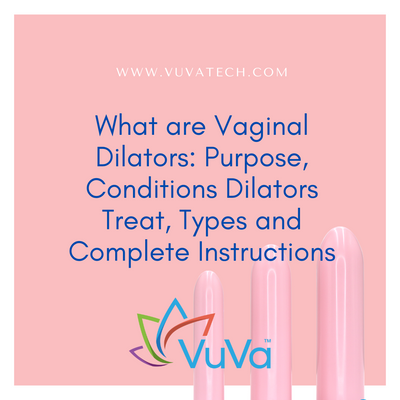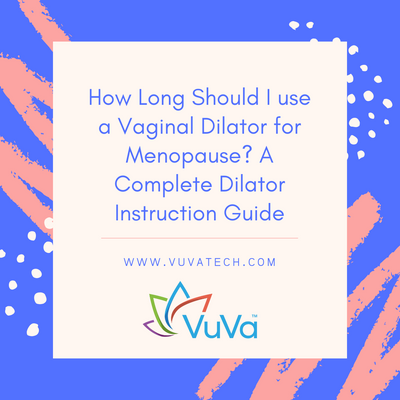
| Tara Langdale
Why am I suddenly so tight down there?
Every now and then in life something goes wrong with our bodies. They are incredibly complex and are subject to a vast number of external influences, as well as few genetic problems. Gynecological issues are very common, but nevertheless can be quite distressing. Changes can happen seemingly overnight, leaving you bewildered as to what has gone wrong. Vaginal tightness is a common complaint from women of all ages. If you are wondering why you suddenly feel tight down there, we have some possible answers for you.
There are various reasons why your vagina suddenly gets tight, so it may be necessary to look at the influences you have been under recently. Although it may not be a serious issue, pain and discomfort are a signal from your body that something is wrong. A tight vagina can be very uncomfortable, but it’s something you may be able to treat yourself. If not, there are many professionals who treat vaginal problems every day.
In this article we will answer some of the most common questions about being tight down there, what cause vaginal tightness and what you can do to loosen your vaginal muscles…
Why I am I tight down there all of a sudden?
Below we have listed some of the most likely reasons why you may be experiencing sudden tightness in your vagina:
Vaginismus
Vaginismus is one of the most common vaginal problems. It happens when there is a fear of penetration, whether that is clinical, sexual or just with a tampon. Your muscles can contract without warning at the prospect of penetration, which and be uncomfortable or painful. With vaginimus you suddenly feel tight down there without warning, and it can be quite shocking the first time it happens.
There are two types of vaginismus: primary vaginismus and secondary vaginismus. Primary vaginismus is the name for when you have always had the problem. Secondary vaginismus means that it has developed later in life. You may suddenly get tight down there even if you never did before. Secondary vaginismus can happen for any of the below reasons:
- Trauma, sexual abuse or emotional abuse
- Relationship difficulties that lead to loss of trust or attraction
- Surgical procedures in the vaginal area (or general pelvic area)
- Radiation therapy to the pelvis or breast areas (vaginal stenosis – see below)
- Menopause (vaginal atrophy – see below)
- Certain medications may cause vaginal dryness or stenosis, among other issues
- Pelvic floor dysfunction (see below)
Vaginismus needs an official diagnosis and is unlikely to go away on its own. However, it is more than possible to recover from it with the right tools or assistance, if needed.
Vaginal atrophy
Another reason you are suddenly tight down there is vaginal atrophy. Although it doesn’t happen overnight, you may not have noticed your vaginal tightness until there was a tipping point, or perhaps you attempted penetration after a long while.
Women who have gone through the menopause may get tightness in the vagina. Some women go through the menopause because of a treatment they received, such as a hysterectomy or course of radiotherapy. Radiotherapy affects estrogen levels. The result can be vaginal atrophy, which means that the tissues aren’t getting enough estrogen. Estrogen is responsible for flexibility, lubrication and thickness of the tissues. When it is missing, these things can all decline. Your vagina can tighten up and become inflamed and sore.
Pelvic floor dysfunction
Pelvic floor dysfunction is one of the most common reasons you can get tight down there. The pelvic floor muscles respond to a range of stimuli, from stress to over-exercise, and your vaginal muscles can tighten without warning. The whole pelvic floor might be tight, which causes other pelvic floor dysfunction symptoms too.
It could be considered a stress response because the muscles are more receptive to stress than many other areas. They act as if they are responding to a threat, retracting and tightening. This can sometimes cause painful cramps, prevent you from going to the toilet easily (both ways!) and make sex painful (dyspareunia). Even inserting a tampon can be difficult when you have pelvic floor dysfunction.
You may need to learn how to relax your pelvic floor muscles with yoga stretches, deep breathing or vaginal dilators.
Vaginal stenosis
Vaginal stenosis is the name for when the vaginal canal becomes shorter or narrower. If you are suddenly tight down there, it may be because you have recently been through some kind of treatment. Chemotherapy or radiotherapy are the most common reasons for stenosis (as well as vaginal atrophy). With the birth canal having shrunk in size, you are bound to become tight. You can also loose flexibility and elasticity, which can make sex painful and put you off wanting it.
Pregnancy
You might not imagine that pregnancy can suddenly make your vagina tight, but it really can. That’s because during pregnancy, your belly grows fast and puts pressure on the surrounding organs. There is also about 20% more blood flow to the vagina, leading to some swelling. Although you don’t actually have a tighter vagina, it just feels tighter down there than usual.
What can I do if I get too tight down there?
If you suddenly feel tight down there, there things you can do to loosen up. Depending on whether the problem is persistent or serious enough to cause regular trouble for you, you might need to see a pelvic floor physical therapist. If you think you can solve the issue at home, you can try using vaginal dilators, which are tools that most physical therapists use and recommend for their clients anyway.
Pelvic floor physical therapy
Pelvic floor physical therapy is one of the best treatments for a tight vagina. Women with the issues we mentioned above often seek the help of a PFPT as a solution. Your therapist will work with you at your own pace, helping you with pelvic floor stretches, trigger point therapy and dilator therapy. They may use myofascial release techniques and biofeedback if required.
Vaginal dilators
Vaginal dilator therapy is a type of physiotherapy treatment. It consists of using cylindrical tools made from medical grade materials to gradually and gently stretch out the vagina over time. Vaginal dilators are the best method of relieving vaginal tightness. They are away for you to stretch your tight vaginal muscles in your own time and space, without the need for supervision.
They can increase capacity and improve elasticity, as well as training your nervous system to become more accustomed to penetration. It can feel a little strange to use dilators for the first time, but it should not hurt (although a little discomfort is normal at first). You can go from suddenly feeling tight down there to feeling completely restored, but the timing depends on your condition and its severity. As well as how often you use your dilators, of course.
One way or another, you will find ways to loosen tight vaginal muscles that work best for you personally. You can rest assured that there will be a solution to your problem, and we hope that we have made it that much easier to find!
Resources
Vuvatech.com/pages/pelvic-floor-stretches
Vuvatech.com/blogs/care/tightness-while-pregnant-we-can-help
Vuvatech.com/blogs/care/how-long-does-it-take-to-loosen-tight-pelvic-floor-muscles-1
Vuvatech.com/blogs/care/first-visit-for-pelvic-floor-physical-therapy-here-s-what-to-expect
Vuvatech.com/blogs/care/atrophic-vaginitis-treatment-with-magnetic-vaginal-dilators













